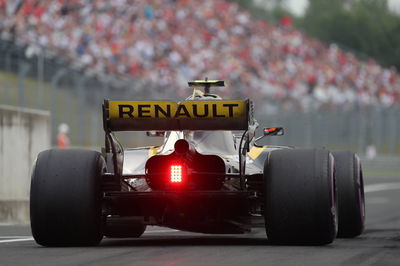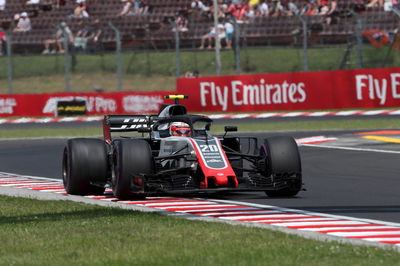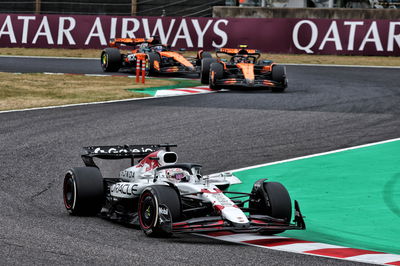How Renault stole Ricciardo away from Red Bull
The concept of a summer ‘break’ seemed lost on many in the Formula 1 paddock this year, as a number of big news stories emerged through the sport’s annual shutdown.
While Fernando Alonso quitting F1 and McLaren’s signing of Carlos Saint Jr. as his replacement may have been big stories, both were dwarfed by the shock decision from Daniel Ricciardo to leave Red Bull for Renault for 2019.
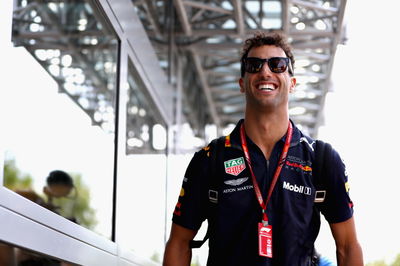
The concept of a summer ‘break’ seemed lost on many in the Formula 1 paddock this year, as a number of big news stories emerged through the sport’s annual shutdown.
While Fernando Alonso quitting F1 and McLaren’s signing of Carlos Saint Jr. as his replacement may have been big stories, both were dwarfed by the shock decision from Daniel Ricciardo to leave Red Bull for Renault for 2019.
The move took the entire paddock by surprise, including Red Bull, who had expected Ricciardo to put pen to paper on a new contract. But as the Australian explained on Thursday in Belgium, his desire for fresh motivation and new challenges in F1 was the primary reason for his decision to jump ship.
But what was the story from Renault’s side? How did the team pull off the biggest coup in the driver market since Lewis Hamilton switched from McLaren to Mercedes six years ago?
Bringing up the Ricciardo signing with Renault F1 chief Cyril Abiteboul during an exclusive interview with Crash.net, he cannot help but break into a wry smile.
“There is nothing magic, there is nothing special,” Abiteboul explains. “It’s been a long process, a process that was not completely in our control, because clearly it was up to Daniel to make up his mind.”
Renault had made its interest in Ricciardo clear from an early stage, but was completely open with him: this wasn’t a team he could walk into from 2019 and expect to be fighting for championships from the very start. This was a long-term project he would be committing to, looking further down the line before arriving at greater glories. Yes, it's a bumper contract deal - but there's much more about Renault's offer that piqued Ricciardo's attention.
“He knew for a long time that we had an interest for him,” Abiteboul says. “He knew for a long time what was the interest from us, from a commercial perspective but more importantly for our project and where we are standing in our operation, what we have to offer - and what we don’t have to offer yet, that is still in the making.
“We’ve not changed our philosophy. We’ve not changed our promise. We’ve not made a promise that we will not be able to honour next year or the year after. The deal was in hands.
"Since the start, I knew that it would be a long process for him to decide what was the best. I could always understand that it would be a difficult decision to decide to move from Red Bull to anywhere else, first, and from Red Bull to join us. I completely accepted that since day one. Therefore I assumed that it would take him a little bit of time to digest an important decision.”
As a result, Renault had to plan accordingly for the seemingly-likely event that Ricciardo would not make the switch. As well as having Sainz still on its books, the team had lined up another option for 2019: current Force India driver Esteban Ocon. A deal was known to have been agreed in principle for Ocon to join Renault next year before the summer break, only for Ricciardo’s decision to force those plans to be scrapped.
“We had to have alternative options,” Abiteboul says. “But if you look at the three options that we had - doing more years with Carlos, going with Esteban, or Daniel - all three options were all very valid, and would almost have been equally satisfied with all three options.
“Obviously Daniel has a bit of ‘wow’ effect, because it was not really what people were expecting. But we are not choosing our drivers just to create a wow effect for one day. The wow effect will come if we are capable of winning races together in the next two years.”
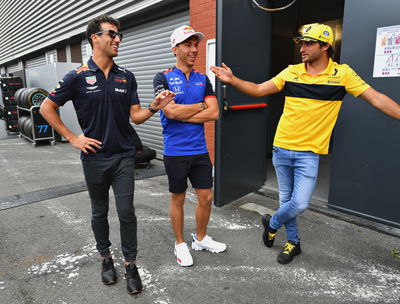
While Renault may be looking into the long-term with its project, the team knows that it needs to step up another level next season - much as it has done each year since reviving its works F1 operation in 2016 - to keep Ricciardo satisfied. His arrival may be significant, but there are pressures that come with it.
“It was a surprise, and it was a relief. But at the same time, I could also feel the weight of what it meant for us, for the team, because I feel that we are obliged now to him,” Abiteboul admits.
“We had an obligation before to perform and continue the progression, but we have a further obligation not to hurt someone who is one of the most charismatic drivers in the paddock. I think everyone wants him to be in a position to be in a good car, a good team, fight for wins, fight for podiums first.
“Now we have that obligation, not in two or three years’ time, but we have that obligation now towards him. I could also feel the weight of that obligation on us. But I can accept that anyway. We are not here to make up the figures, we are here also to perform and do these type of results.”
Talking to teams throughout the paddock, Renault’s name comes up time and time again as the biggest threat to the established status quo at the front of the order moving forward. It didn’t return to F1 with a factory programme to simply be in F1: it wants to win. And that takes a lot of investment and resources.
So while Abiteboul agrees that Ricciardo’s signing is the biggest statement of intent yet to the rest of the F1 world that Renault means business, he stresses that there is plenty more - and of even greater importance - going on behind the scenes.
“I think there are a number of things that we are doing but we are doing in the back office that people don’t perceive,” Abiteboul says.
“I think there have been many more things that should be able to demonstrate that intent, but maybe that people are not capable of judging, when you’re talking about 200 or 300 people who have joined our team, it’s huge, just huge, but people don’t see that.
“When we’re talking about all the investment, extra buildings, new dyno, it’s huge, it’s huge. Changing all the dynos in Viry, it’s huge. But people don’t really see that.
“But a driver, yes, people understand that. So I would say that it’s maybe not the biggest one, in terms of materiality, but I would say, going back to the wow effect, we’re in a world where you need to have symbols.
“I would say Daniel is a symbol of all the things that we have done previously.”
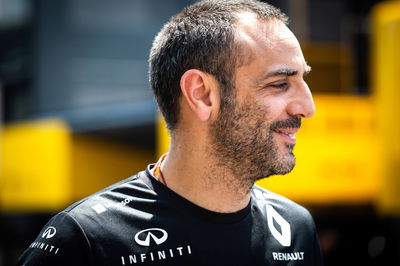
As impressed as Ricciardo may have been with the burgeoning Renault project, concerns over the viability of the new Red Bull-Honda programme, which will start in 2019, are another factor Abiteboul believes influenced the decision - no matter how much the partnership is fanfared.
“I think there must be an element of that,” Abiteboul says. “If he was convinced that Red Bull would be in a position to fight for championships next year, I don’t think he would have stepped away, because Red Bull’s position was very clear, that they wanted to retain him. There is no ambiguity.
“There is a very strong communication strategy coming out from Red Bull, but I think Daniel is experienced enough to see that it is a communication strategy.”
Parallels can be seen in Renault’s current progression and the groundwork that Mercedes laid ahead of the regulation changes for 2014 when its domination of the F1 world began.
But for all of the resources Renault may be able to throw at the planned changes for 2021, while there still is little clarity over what form the new rules will take and what exactly will be changed, Abiteboul feels there is only so much Renault can do.
“We can’t completely bank on [2021], because firstly we don’t know what 2021 is going to be. There’s still a lot of question marks on the exact nature of that change,” Abiteboul says.
“We don’t know what Formula 1 will look like, who is going to be in, who is not going to be in. There’s lots of movement. We know that Concorde and the commercial agreement is going to change. Will there be a budget cap or not? Will there be a new engine regulation or not? It’s difficult just to base the whole project on that solely.
“For the time being, we are only gradually making the steps that we need to make. I think that the driver line-up for next year, with Nico and Daniel, it is clear and beyond question, that’s for sure.
“Now we can focus on the rest. The 2019 engine is already on the dyno as we speak. We are way ahead of our planning in comparison to the previous year, which is good, and I think we have also the facility now in Enstone to develop a competitive car based on the new aero regulations which is going to be a new change.
“So yes, 2021 is on the back of my mind, but before 2021 there is 2019 and 2020, which needs to be also other occasions to continue the progression.”
Ricciardo’s shock signing may be the greatest signal yet that Renault is plotting an assault on the leading F1 teams, but he is simply the latest piece of an ever-growing puzzle at Enstone and Viry.
And while the next two years may not see Ricciardo attain the kind of success he’s tasted with Red Bull, if Renault’s progression and growth continues on its current trajectory - and if it can deliver on more statements of intent akin to Ricciardo’s shock move - we could end up seeing many more Shoeys in years to come.
